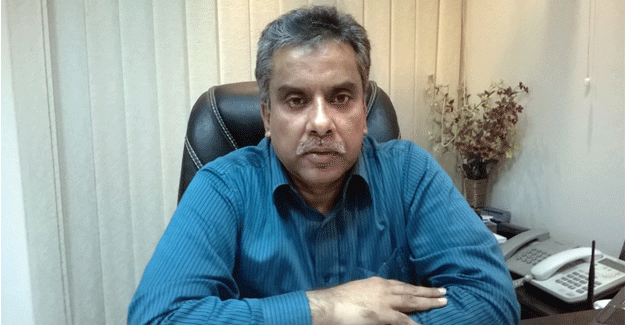
Bangladesh: Entrepreneurs must invest in understanding fashion trends, proactive marketing
Md Fazlul Haque, Managing Director of Plummy Fashions, enumerates the successes and challenges of the Bangladesh textile and clothing industry.
How did Bangladesh achieve its success in the knitwear sector?
There are many contributing factors behind this success story. Knit sector in the country developed as a consequence of the development of the RMG sector, but the main impetus came from the European Union's General System of Preference. The GSP scheme promoted the use of fabrics from the country of origin. And this spurred investments in knitting sector in Bangladesh. Today, we are self-sufficient in knitted yarns, we manufacture 80% of the industry's yarn requirement, even as we have to import knit fabrics for variety and quality demanded by buyers. Our fabrics are mainly cotton based, and we do not have a diverse fibre base as in India and China. We lag in synthetics.
How can the industry overcome the weak backward and forward linkages in the industry?
We certainly require a lot of investments in backward linkages. More importantly, we need to understand changing fashion trends to cater to the demands of buyers and retailers, here especially, the Bangladesh industry lags behind. We also need to focus on forward linkages where some government initiatives are needed, e.g. to enhance economic diplomacy, the Bangladesh embassies and high commissions must have some strategies and programmers. We also need a strong financial infrastructure. Entrepreneurs must invest in understanding fashion trends, proactive marketing.
The industry hires foreigners in mid and top level managerial posts. Why have we lagged in developing manpower, even after 30 years?
Certainly, there is a huge gap between supply and demand of trained, skilled manpower. In the last 30 years, this industry grew phenomenally, but our educational institutes were unable to match our manpower requirements. Though, I would say that we are able to source our engineers from within the country. But there is a dearth of technicians, and we have to hire from abroad. There is also a gap of mindset from both sides e. g. entrepreneurs think our people have not reached that stage of maturity that is needed at a global scale, and our talented professionals prefer to work in sectors like banking, retail, FMCG. There are three groups here a. Job seekers b. Employers c. Students. So a change of mindset is required. Employers need to build the image of the textile and clothing sector to woo managers. Also, leading universities in the country need to impart sector specific knowledge and skills. All three groups need to work in tandem.
How can the industry contain the negative publicity after Rana Plaza and Tazreen accidents?
It has created a negative image for our brand - Made in Bangladesh has certainly taken a hit. There is now an urgent need to show the world that we have compliant factories. The government can allocate single and special fund to help the industry become compliant, to meet international standards. This could be a zero-interest fund. Also, there will then be need to ensure that the fund is not hogged only by the large players. The help has to be for medium and small sized factories, which are more likely to overlook some standards for lack of finances. And not just financial help, these factories must undergo an awareness programme about the need for compliances.
What is your opinion of the 2030 vision?
This is simply setting a target. In near future, we will be a middle income country that is why the setting of targets. We need to be optimistic and grab the opportunity first and create regional connectivity. For the future, we need to enhance good administration, good governance, economic diplomacy, business and industry friendly policy activities, and timely implementation. We need to achieve the maturity to overcome political turmoil.
Textile Excellence
If you wish to Subscribe to Textile Excellence Print Edition, kindly fill in the below form and we shall get back to you with details.












